Over the weekend, Libyan authorities rounded up and detained over 1,500 irregular migrants living in the east of the capital, Tripoli. As the official government continues to vie for power against a rival administration, migrants are increasingly becoming the pawns in a geopolitical game.
Over 1,500 undocumented migrant workers were detained during a major raid east of the Libyan capital Tripoli over the weekend.
Libyan labor minister Ali al-Abed referred to this rounding-up of migrants merely as "inspections," saying that the operation was targeted at "workers, of various nationalities, [who] had no residency permits, no official passports, and not even health records."
Abed, who was present in person during the raid, added that the operation had uncovered previously unknown "housing units where undocumented foreign workers were living."
The minister further highlighted the necessity of the sweep, saying that the site had "unregulated housing that fails to meet basic requirements for decent accommodation, health and workplace safety."
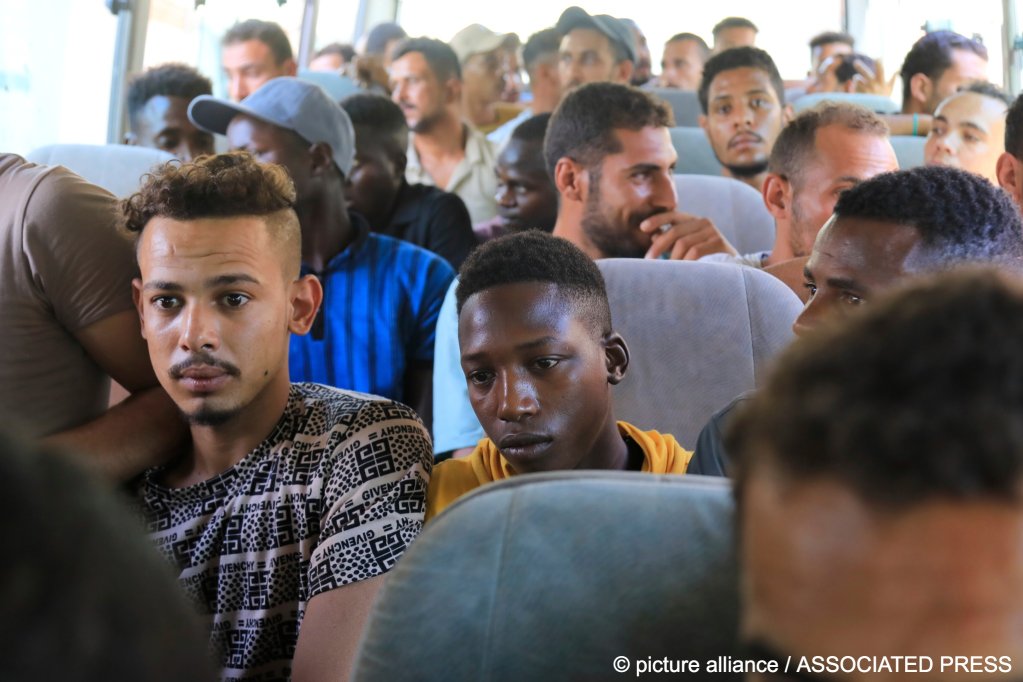
A parallel society
The area where the raids took place is reportedly surrounded by high walls and has a large entrance gate; a journalist working for Agence France-Presse (AFP) reported that there is sufficient basic infrastructure for everyday necessities in this compound — including a small grocery store, a butcher shop as well as several vegetable vendors.
Hundreds of migrants — if not more — are believed to be living in makeshift encampments in this particular neighborhood east of Tripoli; the majority are thought to be Egyptian nationals as well as sub-Saharan Africans of various nationalities.
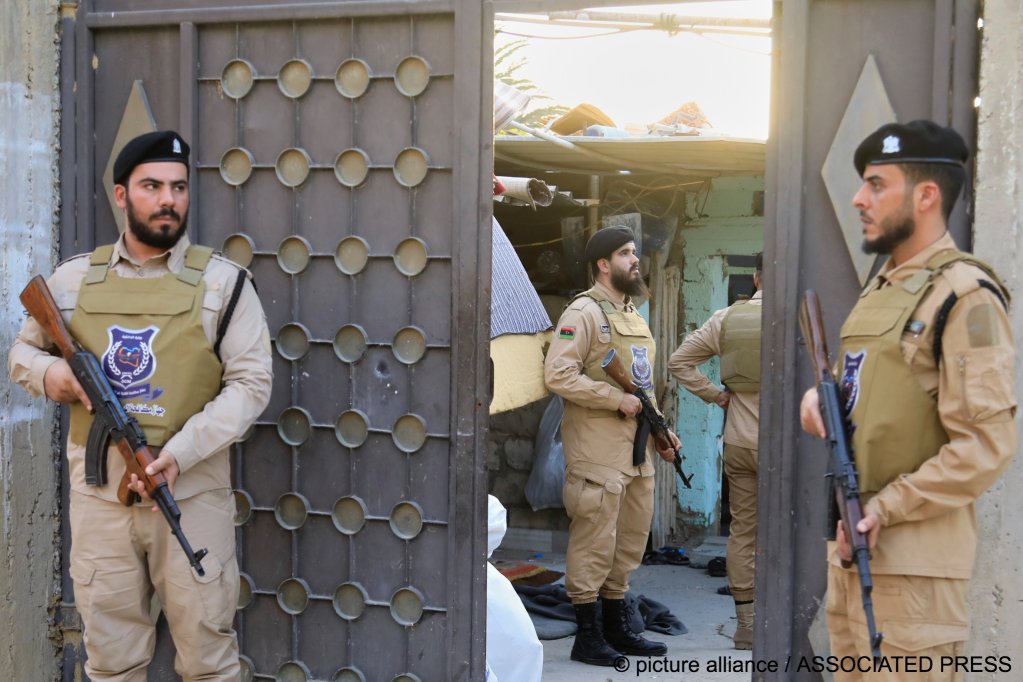
Despite the official narrative focusing on shortcomings in safety measures in this particular area which was the target of the raid, it is probable that the migrants may ultimately be deported from the country.
The threat of deportation
Abed told reporters that the detained migrant workers would next be "transferred to centers run by the Anti-Illegal Immigration Authority" in Libya.
"[L]egal proceedings will be initiated against them according to national regulations," he added without specifying if or when the migrants could face deportation.
Migrants intercepted by Libyan authorities, including those who are picked up in international waters off Libya's coast by the North African nation's coast guard, are notoriously kept under harsh conditions during their detention, which the UN and many human rights groups have repeatedly criticized in the past.
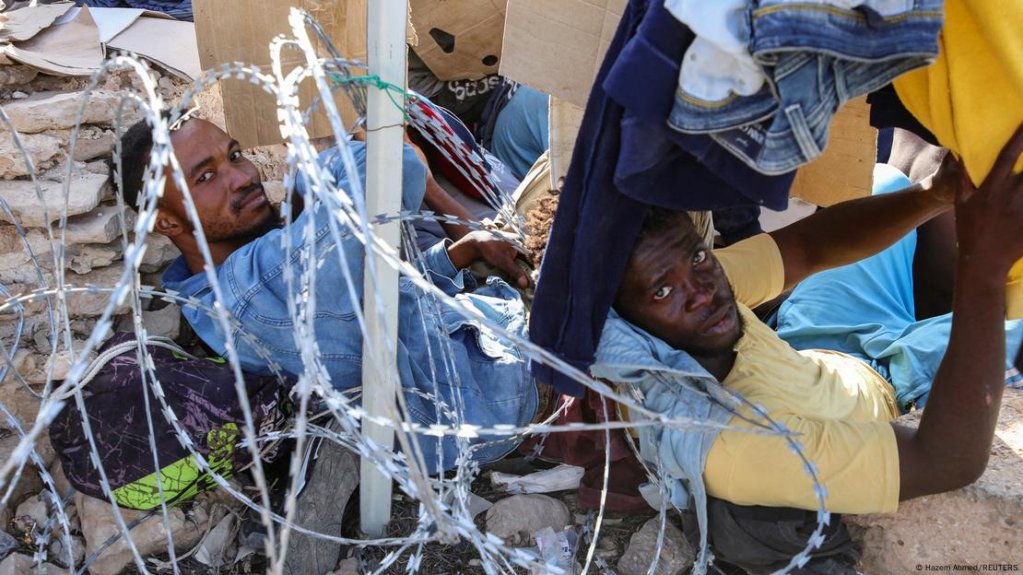
Read AlsoIOM reaches milestone as 100,000 migrants return home from Libya
In many instances, authorities are known to use their detention as an opportunity to encourage or push migrants into partaking in voluntary return programs to their home countries, which are coordinated by the IOM.
On other occasions, migrants — especially from neighboring countries — have been taken back across the border and dumped en masse in the desert with little to fend for themselves.
Read AlsoLibya: Eastern authorities deport 700 Sudanese migrants
More deaths at sea
Despite this threat of deportation and well-known reports about the dire conditions in detention centers, thousands of people continue to make their way to Libya each year, hoping to reach the country's northern shores, where they intend to pay smugglers to take them to Europe.
These sea journeys — covering several hundred kilometers to Italy or Greece — are full of risks, and each year, hundreds of migrants are shipwrecked and die in the waters of the Mediterranean Sea.
The most recent such incident took place on July 25, when at least 18 Egyptian nationals died after capsizing at sea during their attempt to reach the EU. Another 15 migrants from that shipwreck remain missing.
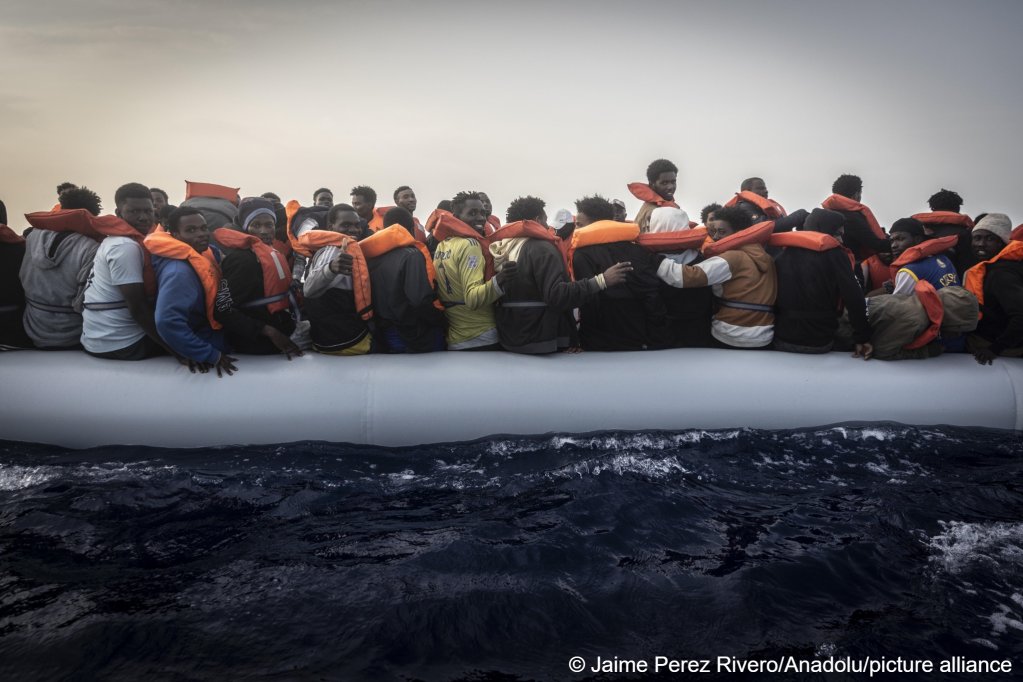
Read AlsoSea-Watch aircraft discovers five bodies off Libya
Almost 15 years of power struggles
The European Union and individual EU member state governments, like Italy, have signed repeated deals with Libya to encourage tighter migration management and try and prevent boats from leaving the country in the first place.
However, since the fall of former strongman Muammar Gaddafi in 2011, the country has been in a permanent state of disarray, making the implementation of many of these agreements difficult in practice.
Above all, power remains split between the internationally recognized government of Prime Minister Abdelhamid Dbeibah in Tripoli and a rival government based further east, which also is vying for recognition and support.
The lack of a unified administration is, however, just one of several challenges that the country faces.
Read AlsoMigrant population in Libya up 20 percent in March-April – IOM
Migrants stuck in Libya
Furthermore, with many migrants becoming permanently stuck in Libya — either under indentured work conditions or due to lacking funds to finance their onward irregular journeys to Europe, Libya is also increasingly now turning into a reluctant destination country for many people who have fled hunger, poverty and persecution elsewhere.
Reports of severe human rights abuses against the migrant community, reaching from slavery to sexual abuse to torture for extortion, create further challenges for the North African nation's role in the present migration debate.
Despite all these grievances, the European Union continues to seek dialog with all players in Libya; Magnus Brunner, the EU's Home Affairs and Migration Commissioner, said last week that further negotiation with both administrations in Libya were needed to address the issue of migration towards Europe.
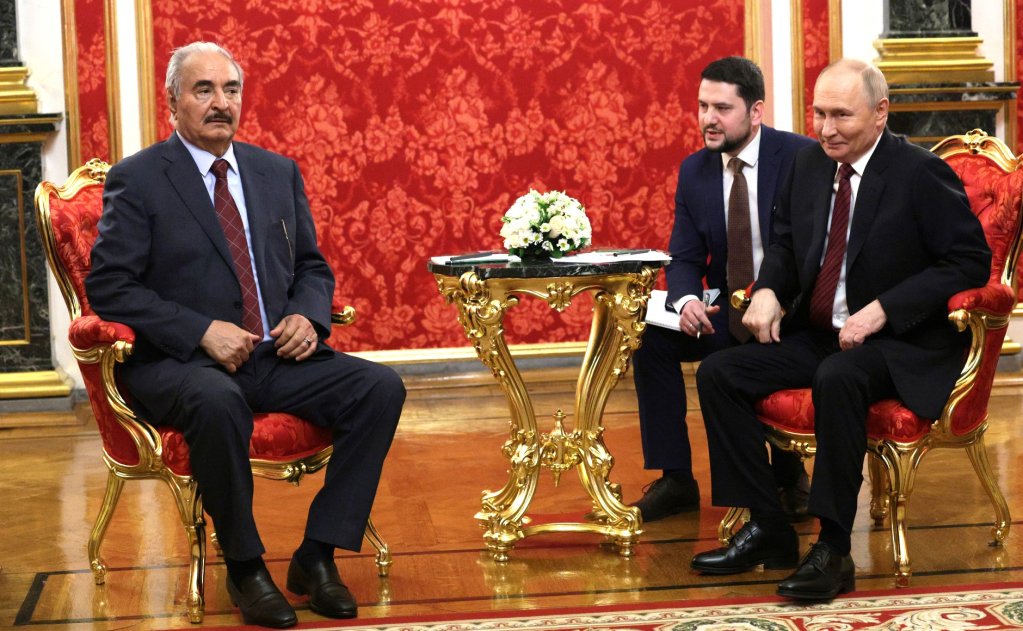
There are also mounting fears in Brussels that Russia might want to expand its influence on Libya, which could result in further chaos and migration towards Europe. Russia's President Vladimir Putin met with Field Marshal Khalifa Haftar in the Kremlin in May this year. Details of their talks have not been fully released, but some analysts fear that Russia may be seeking to destabilize the EU further via deals with the authorities in eastern Libya.
Brunner said that this is a "concern" for Europe, and "that’s why we must also engage with Libya."
Read AlsoEU Migration Commissioner calls for further negotiation with Libya
With AFP, AP
